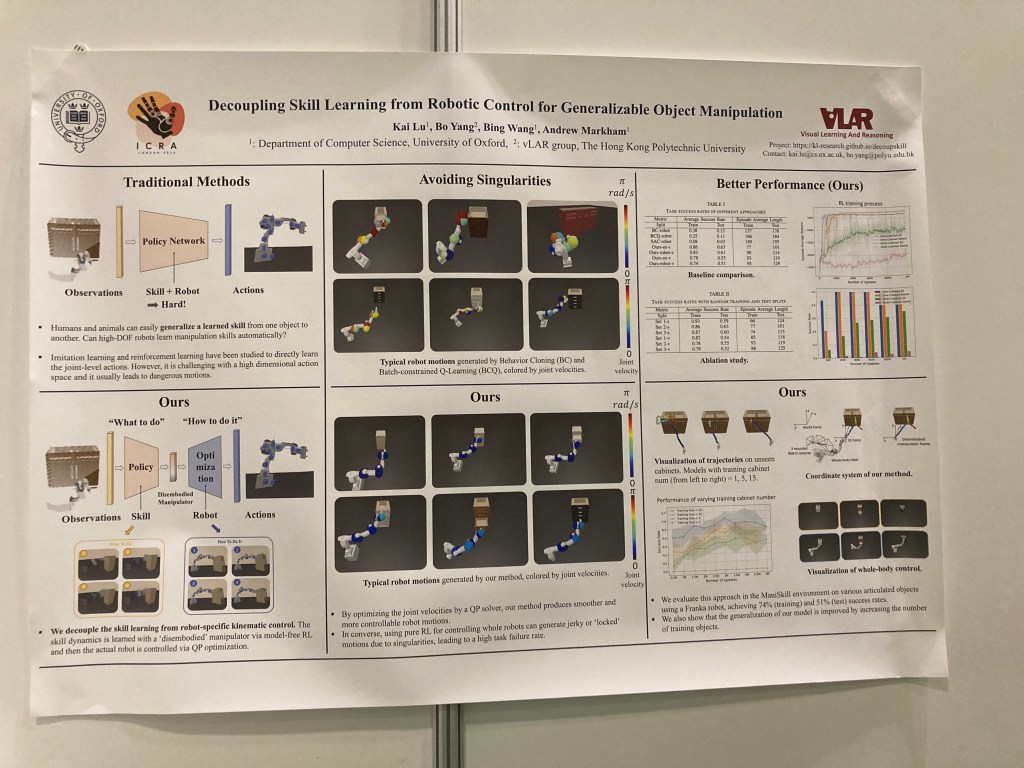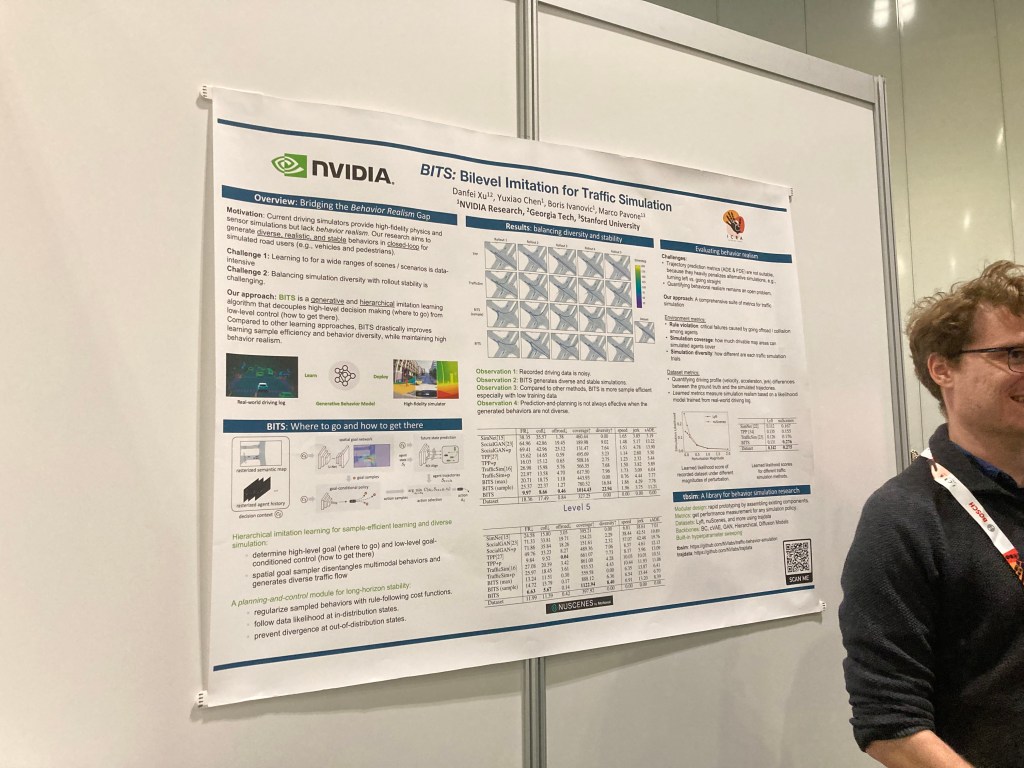After being able to take part in a few in-person conferences at the beginning of my PhD, such as AAMAS and AAAI, and giving virtual presentations for the rest of it due to the pandemic, attending the International Conference on Robotics and Automation (ICRA) right after my defense was truly refreshing.



As I delved deeper into my studies, I became more aware of the intricacies and challenges within my research area. Visiting London and actively participating in the conference allowed me to exchange ideas, knowledge, and experiences with researchers who share similar passions and approach analogous problems from different perspectives. Co-chairing and moderating the panel discussion for the workshop on Explainable Robotics provided a unique opportunity. Thanks to the panelists Seongun Kim, Bradley Hayes, Tathagata Chakraborti, and Silvia Rossi, we discussed various aspects of explainable robotics and its significance in the development and deployment of robots.
The discussion covered several key themes, including definitions and challenges of explainability in robotics, interactivity and human modeling, causation, safety, and ethical considerations.
During the first segment, the panel explored the definition of explainable robotics and emphasized its crucial role, especially in critical situations. The importance of timing in explanations was emphasized, as explanations are necessary to clarify the reasons behind failures. Furthermore, the distinct embodiment of robotics provides access to various communication modalities that non-embodied counterparts lack, albeit it also entails additional design and safety considerations.
The interactivity and human modeling aspects of explainable robotics were thoroughly discussed. The question of whether explainable robotics, similar to explainable agency, should be seen as a one-shot interaction or a process involving ongoing interactions was raised. The limitations and constraints of the one-shot interaction approach, particularly in terms of human modeling, were examined. The consensus among the panelists was that explainable robotics inevitably involves ongoing interactions, which necessitates a nuanced perspective for a comprehensive understanding.
Causation was another topic of focus, with the panelists discussing promising approaches for studying causal methods in explainable robotics. Debates arose regarding the extent to which causes should be explained, emphasizing the importance of addressing “why not” questions in explanations.
Looking ahead, the panelists shared their thoughts on the future of explainable robotics. They mentioned the potential of Large Language Models (LLMs) and raised questions regarding the validity and utility of explanations. Additionally, they highlighted the need for more focus on debugging deep learning systems and predicted advancements in warehouse robotics.
Lastly, ethical considerations were discussed in terms of regulations, emphasizing the need to design reliable systems and focus on the confidence level of the system and the correctness of explanations.
Overall, the conference featured a wide range of thought-provoking presentations, workshops, and plenary talks. I had the privilege of engaging in stimulating conversations presenting my work at the Department of Informatics of King’s College, and even forming potential collaborations that could shape the trajectory of my research. I finally got the chance to meet Gerard Canal and Benjamin Krarup, with whom I have often interacted remotely in the past, as well as Andrew Coles and his lab fellows. Thanks for inviting me!
It is interesting to witness the evolution of ideas from algorithms presented on posters to experimental results discussed in paper presentations, ultimately leading to the development of robust systems capable of competing against one another and tackling practical challenges like cooking or navigating unstable terrains.
Furthermore, exploring how these advancements contribute to industrial products, and educational materials, and even provide fresh perspectives on the essence of humanity has been truly enlightening. The conference has left me eager to apply the knowledge gained to further propel my research and contribute to the exciting advancements in this dynamic and rapidly evolving field.







While participating in the conference, I had the opportunity to collaborate with my colleague Riddhiman Laha on recording several interviews for Talking Robotics. It was an exciting endeavor, and I am enthusiastic to share more details about these interviews soon.